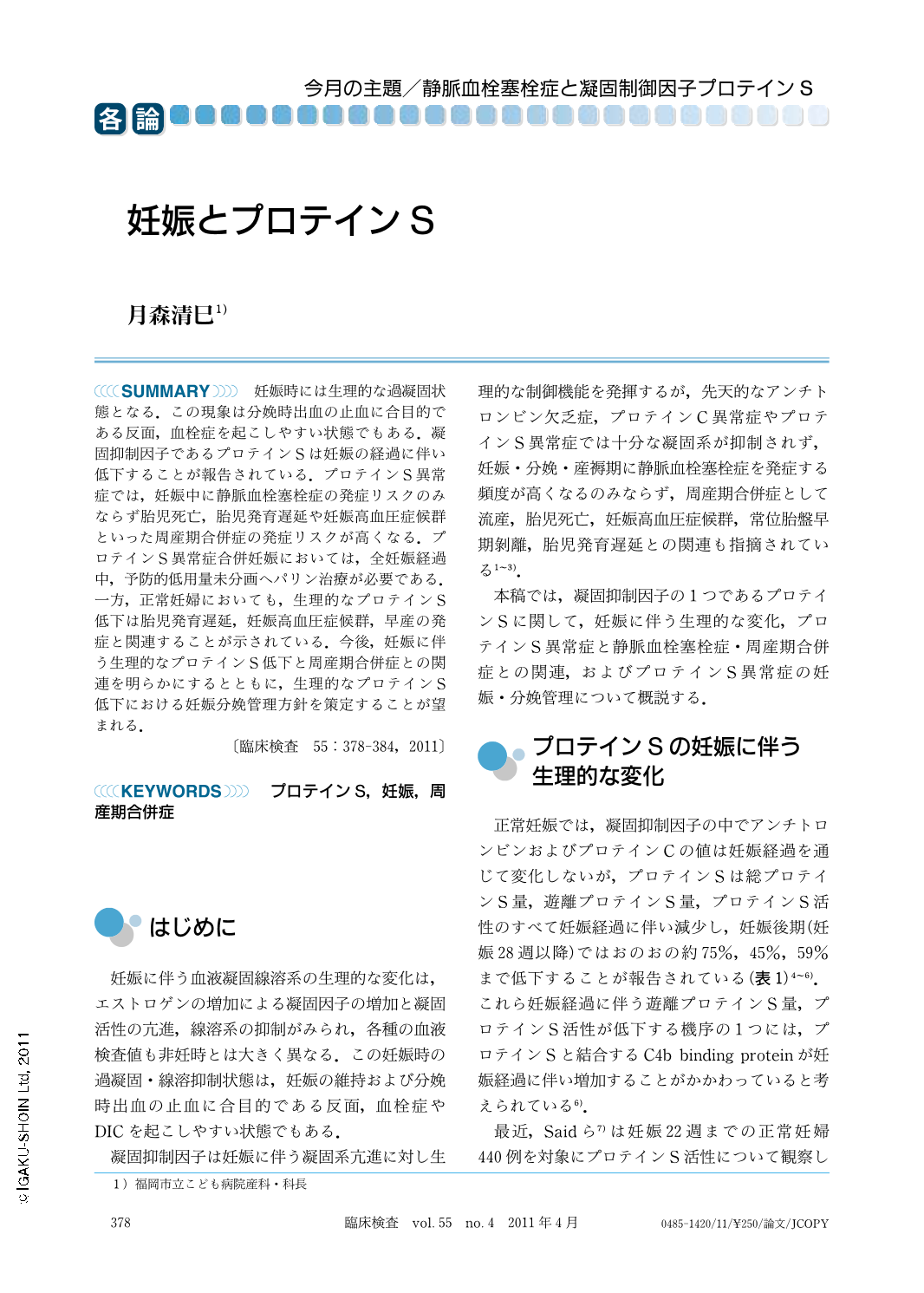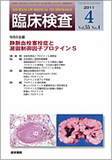Japanese
English
- 有料閲覧
- Abstract 文献概要
- 1ページ目 Look Inside
- 参考文献 Reference
妊娠時には生理的な過凝固状態となる.この現象は分娩時出血の止血に合目的である反面,血栓症を起こしやすい状態でもある.凝固抑制因子であるプロテインSは妊娠の経過に伴い低下することが報告されている.プロテインS異常症では,妊娠中に静脈血栓塞栓症の発症リスクのみならず胎児死亡,胎児発育遅延や妊娠高血圧症候群といった周産期合併症の発症リスクが高くなる.プロテインS異常症合併妊娠においては,全妊娠経過中,予防的低用量未分画ヘパリン治療が必要である.一方,正常妊婦においても,生理的なプロテインS低下は胎児発育遅延,妊娠高血圧症候群,早産の発症と関連することが示されている.今後,妊娠に伴う生理的なプロテインS低下と周産期合併症との関連を明らかにするとともに,生理的なプロテインS低下における妊娠分娩管理方針を策定することが望まれる.
Pregnancy itself induces a physiologic state of hypercoagulability. This phenomenon protects the woman from fatal hemorrhage during delivery but predisposes her to thromboembolism. Protein S, which is a natural anticoagulant, has been reported to fall progressively with increasing gestation. During pregnancy, protein S deficiency increases not only the risk of maternal thromboembolism but also the risk of adverse perinatal complications such as fetal loss, fetal growth restriction and preeclampsia. Women with protein S deficiency are recommended to use prophylactic low dose heparin during pregnancy. In contrast, physiological reduction of protein S levels in normal pregnant women has been shown to be associated with fetal growth restriction, preeclampsia and preterm labor. It is expected to prove a causal relationship between decreased PS levels and development of adverse pregnancy outcomes and to develop peri- and postpartum management strategies in physiological reduction of protein S levels during pregnancy.

Copyright © 2011, Igaku-Shoin Ltd. All rights reserved.


